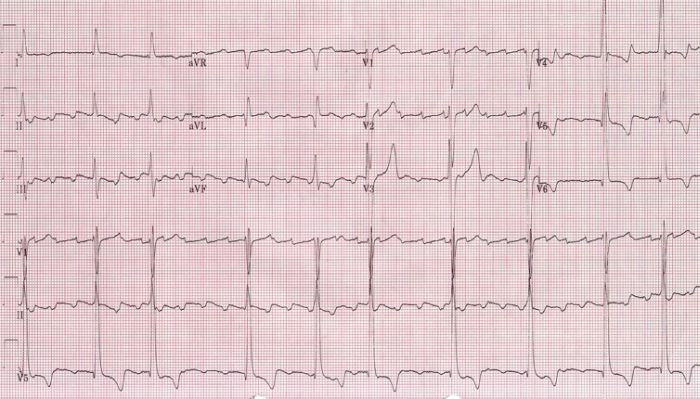

Why this happens after a nap, I have no clue. If I would need to describe it somehow, I feel like my chest is missing oxygen. It's like I can feel my chest feels weird the moment I wake up. It kinda feels like my chest is empty and my heart is more idle than usual, even though my wrist watch says my pulse is at around 70. This is very strange and it's so hard to describe how this feels. Sometimes taking a nap at daytime makes my chest feel strange for 3-6 hours after waking up. Sometimes breathing in heavily can start the palpitations, but only if I've already figured it's going to happen that day. Eating heavily seems to have something to do with it, at least, those days when I've had the palpitations I've eaten more than usual. When the actual palpitations take place, bending my back forwards seems to lessen the sensation while it's going on. I can sometimes tell that it's going to happen, my chest feels "shallow" or empty for a couple of hours prior. It might repeat the same day later for another 30 seconds. I always get jump scared by it and my pulse goes up a bit as a result. I could also describe it as if my heart stops beating or drops from my chest. It feels as if someone is twisting my heart in my chest up to 30 seconds. They told me a holter would be useless for these symptoms. They've done blood tests, ECG and Echocardiogram and all results are normal. Been to 5 different doctors, and nobody seems concerned. Call the NJ Cardiovascular Institute office nearest you or send us a message online today.28 year old male, 181cm/70kg. Once we know what’s causing your symptoms, we develop a treatment plan to help minimize your symptoms and improve your health. Patel and our team offer comprehensive diagnostics and testing to evaluate your heart health. Chest pain and palpitations can be caused by a variety of factors, and only a doctor can determine the cause and recommend the best course of treatment.ĭr.

If you have sudden, severe chest pain along with shortness of breath, sweating, or an unusual sense of fullness or pressure, it's important to seek medical attention immediately, as these could be signs of a heart attack.Įxperiencing chest pain is concerning, and you should never ignore it. Most arrhythmias are harmless, while others can be serious and require medical attention. Angina is chest pain, which is discomfort caused by a lack of oxygen-rich blood flow to the heart muscle, and it can be a warning sign of a heart attack.Īrrhythmias are irregular heartbeats that can cause palpitations, shortness of breath, dizziness, and chest pain. Last but not least, chest pain or palpitations could be signs of cardiovascular issues. Treating the underlying gastrointestinal issue can relieve symptoms. If you experience chest pain after eating or lying down, it may be a sign of gastroesophageal reflux disease (GERD), which is a chronic type of acid reflux. That’s why acid reflux is often referred to as “heartburn.” The nerves that connect to your esophagus and chest run close to your heart, which can make it difficult to determine the origin of the pain. Sometimes, gastrointestinal problems like acid reflux or indigestion cause chest pain. If you struggle with stress or anxiety, practicing stress-management techniques like deep breathing and physical exercise can be helpful in reducing symptoms. Although it’s benign, it can still be uncomfortable and concerning. Adrenaline is a hormone that increases blood flow and breathing rate, and more adrenaline can make your heart beat faster and result in chest pain. When you're feeling anxious or stressed, your body produces more adrenaline. Anxiety or stressīoth chest pain and palpitations can be symptoms of high anxiety or stress. Here are three possible reasons why you might experience chest pain and palpitations, and what to do about them. He and our team at NJ Cardiovascular Institute specialize in diagnostics to evaluate your symptoms and develop a treatment plan.

But more often than not, they’re caused by benign conditions like anxiety or even acid reflux.Īs a leading cardiologist in Elizabeth, Lakewood, Paramus, and Secaucus, New Jersey, Kunal Patel, MD, can help you determine the cause of your chest discomfort. Chest pain and palpitations are common symptoms that can be both alarming and worrisome - and if your first thought is that you’re having a heart attack, you’re certainly not alone.Ĭhest pain and palpitations can be serious. Feeling pain or fluttering in your chest is scary.


 0 kommentar(er)
0 kommentar(er)
